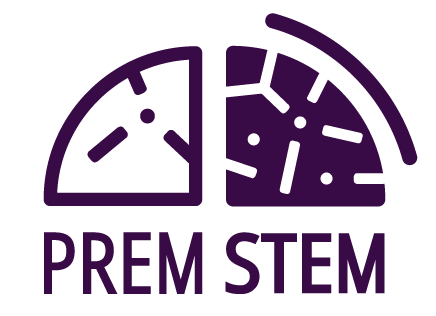Co-creation
Stakeholder engagement in the PREMSTEM project
What is co-creation?
Co-creation is a method which allows the involvement of various stakeholder groups, for example of a service or product, to work with a company on an idea or concept.
Co-creation can help people involved in a project to see beyond their own perspectives by letting external people provide feedback, describe experiences, offer ideas and inputs on a particular idea, product or concept.
Co-creation can reveal insights that haven’t been considered before. This type of consultation and collaboration between a company and its consumers can help to improve products, ideas and services. It can also help to create new ideas, all based upon the views of people who might one day use or benefit from them.
Credit: geralt (Pixabay)
Why did we use co-creation in the PREMSTEM project?
We wanted to give people from outside of the project an opportunity to have a say in the research we’re doing. Our long-term aim is to take our stem cell therapy for preterm brain injury to clinical trial. To get there it’s important for us to understand and be aware of any potential barriers, both from a societal and regulatory point of view. What is the best way to do this? By hearing opinions and insights from people who represent the future users and beneficiaries of the research!
PREMSTEM’s co-creation challenge
How can we lay the groundwork for societal and professional acceptance to perform clinical trials with stem cells in medically fragile preterm infants?
Who did we invite to participate?
We looked for people who self-identify in one of the following categories:
- Member of the PREMSTEM Patient/Consumer Advisory Board or a patient/consumer organisation/advocacy group
- Member of the PREMSTEM Ethics/Institutional Review Board committee
- Parents/carers of a preterm baby or young child who might be eligible for a future stem cell treatment and/or adults who were born preterm
- Parents/carers of a child with no known health issues
- Clinicians or other health professionals
- Researchers (preferably in the health sciences)
- Policy makers
- Governance/regulatory bodies
- Other interested parties
What were the co-creation activities?
10 online co-creation workshops were held between June 2022 and February 2024 (with a break for the interview phase)
We initially aimed for 20-25 participants in each workshop with as much consistency in the group as possible.
One-on-one interviews were held between March and September 2023
A small number of people also participated in a one-on-one interview via video call in order to share more individual and deeper insights in addition to the workshops. Interviews took place with people who represented the following stakeholder groups:
- Parents of preterm-born children who have been enrolled in a clinical trial
- Neonatologists and nurses who have worked on clinical trials with preterm-born children
- Adults who could have been eligible for a treatment as a child
- Media professionals
Who ran the activities?
PREMSTEM partner RMIT Europe coordinated the co-creation activities.
The activities were facilitated by Punk Design who are specialists in design thinking, human-centred design, LEGO® SERIOUS PLAY® and designing methodologies to solve global challenges.
What was the participant's role?
We asked participants in the co-creation activities for their insights and inputs on different aspects related to PREMSTEM’s research and aim of taking the stem cell therapy to clinical trial. Their participation helped us to:
- Define key stakeholders to influence with communication
- Define concerns and obstacles
- Define personas (profiling/identifying different types of end users and their needs for the PREMSTEM therapy)
- Create a strategy for social and professional acceptance of the PREMSTEM therapy
What was the time commitment?
We hoped to invite as many of the same people to take part in the co-creation workshops. Workshops took place between June 2022 and February 2024. Each session lasted three hours. Given this large, unpaid time commitment for participants, we highly appreciated all contributions and participations in these activities. We aimed to run the co-creation workshops at a time suitable to participants attending from Europe and Australia.
One-on-one interviews lasted approximately one hour. RMIT Europe worked with participants after the interview to approve the transcription of the discussion.
Summary of workshops
What is LEGO® SERIOUS PLAY® like?
Co-creation facilitator, Enrique Conches, and PREMSTEM researcher Bobbi Fleiss tried out LEGO® SERIOUS PLAY® as a tool to answer two questions:
- Why is it important to participate in the co-creation sessions?
- What is the value of the co-creation sessions for the project?
This was Bobbi’s first experience of using this building technique to explain a concept. See how she got on in the videos below!
Are you interested in taking part?
If you’re interested in taking part in the PREMSTEM co-creation workshops and identify as being a representative of one of the groups listed above, please get in touch via our contact form!
PREMSTEM’s co-creation workshops and interviews have now finished. A huge thank you to everyone who participated and contributed to this part of the project!
The PREMSTEM co-creation activities have been approved by the RMIT University STEM College Human Ethics Advisory Network as they meet the requirements of the National Statement on Ethical Conduct in Human Research (NHMRC, 2007).
Further information
Before submitting an expression of interest, please carefully read the following:
Participant Information Sheet (PDF)
Co-creation roadmap and agenda (PDF)
Please note that all activities will be conducted in the English language. All participation is on a voluntary basis and participants can withdraw at any time. No reimbursement is available for these activities.
